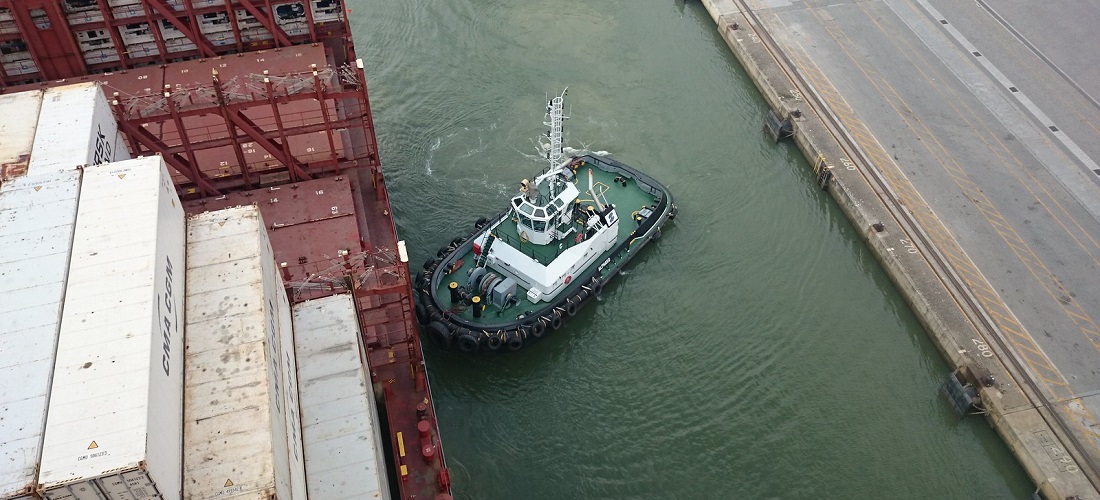
Market players criticize gov’t over supposed inaction following pilotage law approval
Nov, 27, 2023 Posted by Gabriel MalheirosWeek 202344
Representatives from agribusiness, industry, and freight companies are accusing the government of turning a blind eye by allowing a new pilotage law to be approved in Congress. The new legislation perpetuates the monopoly of pilots in their activity. Pilots are a select group of 600 professionals who maneuver ships when entering and departing from Brazilian ports, earning an average monthly income of R$300,000.
The victory for this professional category represents a setback for various sectors of the economy. It runs counter to the guidance provided by the Ministry of Development, Industry, and Commerce (MDIC), the Administrative Council for Economic Defense (Cade), the Federal Auditors Court (TCU), and even the Navy.
According to these representatives, the rotation system of pilots in ship maneuvers hampers competition. They argue that permanent economic regulation for this activity, administered by an authority with experience in preventing abuses, is necessary—a measure thwarted by the bill.
The bill, which underwent expedited processing and reached the Senate at the end of last week, outlines that price fixing will only occur upon request, in an extraordinary, exceptional, and temporary manner, with a limit of 12 months, extendable for an equal period, and under the purview of the Navy.
What’s noteworthy is that the Navy itself acknowledges its lack of experience in conducting economic regulation and advocates for this responsibility to be transferred to the sector’s regulatory agency, Antaq. However, the bill merely assigns Antaq an advisory role.
A TCU audit highlighted that pilotage prices in Brazil significantly exceed the international average. The audit emphasizes that Brazil’s average hourly maneuver rate is 2.6 times higher than the highest rate in the USA, and the average prices charged in 8 Brazilian ports have a premium of 529% compared to the average of 9 international ports.
“This is a scandal in Brazil. Do you know who pays? Producers,” stated Deputy Alceu Moreira, a prominent representative of the agribusiness caucus in the National Congress, during the bill vote last week.
According to sectorial caucuses in the Chamber, during the vote, representatives from the Planalto Palace were sent without a defined orientation for the position of the deputy base.
Piloting is one of the factors contributing to the “Brazil Cost,” according to an MDIC study. The ministry considers economic regulation of this activity a necessary measure to enhance the competitiveness of Brazilian exports.
The ministry contends that the requirement for shipping companies to hire the pilot designated by the rotation system, the so-called “rotating pilot,” “compromises free price negotiation, encourages overpricing, and leads to the consequent increase in logistics costs.”
Last Sunday (26), the Navy released a statement stating that the bill “seriously jeopardizes navigational safety.”
“The original proposal exclusively addressed the economic regulation of the pilotage activity, which would fall under the jurisdiction of the National Waterway Transportation Agency. The substitute bill designates the MB [Brazilian Navy] as the economic regulator (…). The approved version does not improve regulation but removes regulatory tools from the Maritime Authority, as elevating it to a legal level hampers its modernization with the agility the sector requires,” the statement says.
The ministry supports the rotation system but asserts that, as defined, it will establish a “perennial monopoly and market.”
OTHER SIDE
The Brazilian Piloting Association, representing the category, stated that the bill went through dozens of meetings and public hearings in both the Senate and the Chamber before going to a vote.
“In the unanimous approval of the bill in the Chamber, the rapporteur, Deputy Colonel Meira, highlighted that 25 sectors were involved in the construction of the text,” the association said in a statement.
“The purpose of the criticisms is to divert attention from the debate on the effective regulation of abusive maritime freight charged by shipowners. During the pandemic, for example, freight quintupled. More recently, during the dry season in the Amazon, shipping companies charged surcharges of R$5,000 per TEU, totaling R$15 million per vessel. These practices need oversight and regulation from Antaq,” the association said.
According to them, the rotation system is a determination of the Navy for maritime safety and to prevent favoritism from shipowners. Moreover, under current legislation, the Navy can set the price of the service, exceptionally and temporarily, in the event of a deadlock in negotiations between the shipowner and pilotage.
“In Manaus, for example, dozens of current pilotage invoices charging the same values established in Navy ordinances 12 years ago. The bill reinforces this prerogative of the Navy. It brings innovation, allowing Antaq to participate in a temporary committee formed by the Maritime Authority to issue an advisory opinion on the price. This was a request from shipowners,” the statement says.
Regarding prices above the international average and the impact on the “Brazil Cost,” the entity claims that a study by the Laboratory of Transport and Logistics (LabTrans) at the Federal University of Santa Catarina (UFSC) indicated that the participation of pilotage in the cost of maritime freight is 0.36% and 0.54%, depending on the destination ports (China and the Netherlands, respectively), with no impact on the user.
According to the Federal Court of Accounts (TCU), “the technical regulation exercised by the Navy, with the consequent establishment of the unique rotation scale, does not constitute a violation of economic order.”
Source: Folha de S. Paulo
Click here to read the original text: https://www1.folha.uol.com.br/colunas/painelsa/2023/11/produtores-atacam-inacao-do-governo-em-projeto-de-valets-de-navios.shtml
-
Shipping
May, 30, 2023
0
DP World inaugurates express service between Manaus and Santos
-
Trade Regulations
Oct, 04, 2023
0
Brazil Opens 51 New Agribusiness Markets Worldwide in 2023
-
Trade Regulations
Jan, 07, 2021
0
Portuguese EU presidency wants to sign trade agreement with Mercosur
-
Other Logistics
May, 25, 2021
0
Nissan to stop production at Brazilian factory due to lack of semi-conductors


